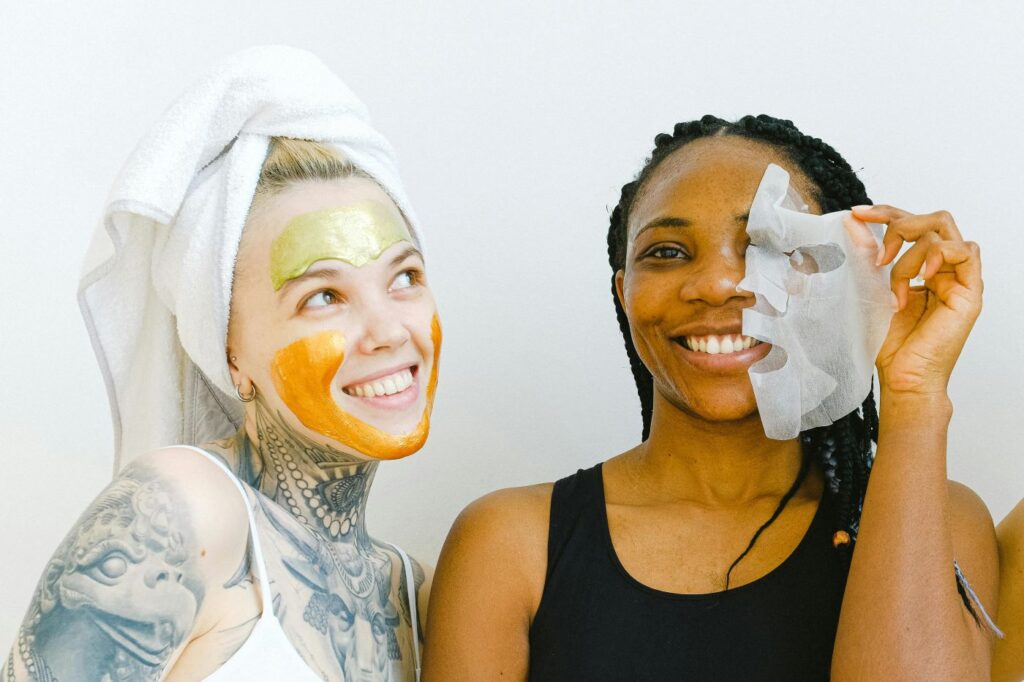Skin Care
Are Clay Masks Better Than Peel Off Face Masks
When it comes to face masks, there are so many possibilities that it can be difficult to determine which one is best for you. Clay masks and peel-off masks are two common forms of face masks; which is superior? In this article, we will look at the differences between clay masks and peel-off masks and help you decide which one is best for your skin.
Clay masks are manufactured from a variety of clays, including kaolin and bentonite, and are intended to absorb excess oil and pollutants from the skin. They are usually applied to the face and kept on for a few minutes before being washed off with warm water. Peel-off masks, on the other hand, are applied to the skin and allowed to dry before peeling off in a single piece. They are frequently advertised as a means to exfoliate the skin, remove dead skin cells, unclog pores, and improve skin texture.
While both types of masks have advantages, there are some important distinctions to consider. Clay masks are often preferable for persons with oily or acne-prone skin since they assist to absorb excess oil and minimize the appearance of pores. Peel-off masks, on the other hand, may be more appropriate for persons with dry or sensitive skin because they are less likely to deplete the skin’s natural oils. Finally, the optimal sort of mask for you will be determined by your skin type and specific concerns.
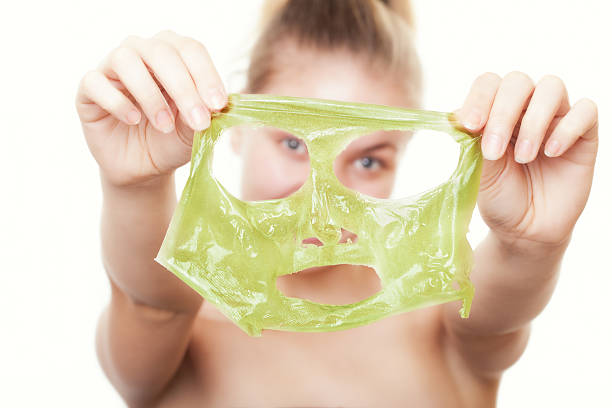
Understanding Different Mask Types
There are various varieties of face masks available, each with its own set of benefits. In this section, we’ll look at the most popular varieties of face masks and their important qualities.
Clay Masks
Clay masks are a popular face mask with strong cleansing capabilities. They are manufactured from a variety of clays, including kaolin clay and bentonite, which are known for their capacity to absorb excess oil and pollutants from skin. Clay masks are good for persons with oily or acne-prone skin since they can help to unclog pores, minimize blackheads, and create a more even complexion.
Peel-Off Masks
Another popular type of face mask is the peel-off mask, which is noted for its capacity to remove pollutants and dead skin cells from the skin’s surface. They are usually made of a gel-like substance that is applied to the skin and allowed to dry. Once the mask has dried, peel it off to remove any impurities and dead skin cells. Peel-off masks are good for people with dry or sensitive skin because they are less likely to irritate.
Sheet Masks
Sheet masks are face masks comprised of a thin sheet of material, such as cotton or hydrogel, that has been soaked with serum or moisturizer. They are meant to hydrate the skin and can be used on any skin type. Sheet masks are simple to use and can be applied in minutes, making them excellent for those with hectic schedules.
Cream Masks
Cream masks are a form of facial mask that is intended to deliver extreme moisture to the skin. They are usually produced with a thick, creamy mixture that is applied to the skin and let to absorb. Cream masks are good for dry or aged skin since they assist to restore moisture and produce a more youthful appearance.
When selecting a face mask, you should consider your skin type and the specific demands of your skin. Look for masks that contain skin-beneficial substances, such as minerals or charcoal for deep cleansing, or moisturizing compounds to hydrate.
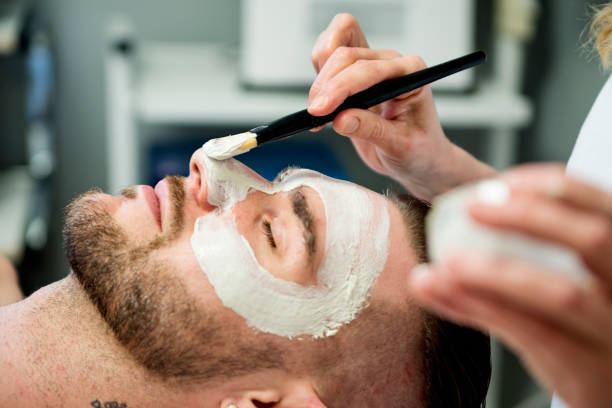
Benefits of Clay Masks
Clay masks have long been a popular skincare treatment option. They are known for their capacity to cleanse, exfoliate, and detoxify the skin, making them a valuable complement to any skincare regimen. In this section, we’ll look at the benefits of clay masks and why they can be a better option than peel-off face masks.
Oil Control and Pore Cleansing
Clay masks are great for reducing excess oil and cleaning the pores. They include active substances including niacinamide, kaolin clay, bentonite, and rhassoul clay, which assist to absorb excess oil and pollutants from the skin. This makes them an excellent alternative for individuals with oily or acne-prone skin.
Exfoliation and Skin Smoothing
Clay masks are also effective at exfoliating the skin and smoothing up rough spots. They include microscopic particles that help to remove dead skin cells, revealing smoother, softer skin beneath. This makes them ideal for those with dry or rough skin.
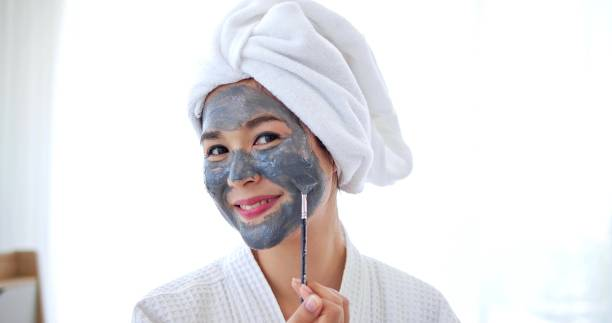
Natural Ingredients and Mineral Infusion
One of the best aspects of clay masks is that they are manufactured with natural components. They contain minerals like magnesium, calcium, and potassium, which are required for healthy skin. These minerals nourish the skin, making it look and feel soft and luminous.
Finally, clay masks offer numerous advantages over peel-off face masks. They are effective at controlling excess oil, cleaning pores, exfoliating skin, and providing important minerals. If you want a skincare product that can help you obtain healthy, glowing skin, a clay mask is a must-try.
Comparing Effects on Skin Health
Hydration and Moisture Balance
When it comes to skin hydration and moisture balance, clay masks and peel-off masks are both beneficial. Clay masks, for example, are known for their capacity to absorb excess oil and pollutants from the face, so unclogging pores and preventing breakouts. They can also help eliminate dead skin cells and enhance skin texture. Peel-off masks, on the other hand, can help eliminate dead skin cells and enhance the texture of the skin, leaving it smooth and refreshed.
Irritation and Sensitivity
If you have sensitive skin or are prone to inflammation, make sure to select a mask that is soft on the skin. Clay masks might be a suitable choice for people with sensitive skin because they are less irritating than peel-off masks. However, it is critical to select a clay mask designed for delicate skin, as certain clay masks can be drying and irritating. Peel-off masks can potentially irritate the skin, particularly if not thoroughly removed.
Skin Type Considerations
When deciding between clay masks and peel-off masks, consider your skin type. Clay masks are generally preferable for people with oily or acne-prone skin since they assist to absorb excess oil and unclog pores. However, if you have dry or sensitive skin, a clay mask may be drying and irritating. Peel-off masks might be beneficial for persons with dry or mixed skin because they exfoliate dead skin cells and offer hydration to the skin.
Overall, clay masks and peel-off masks can be good to the skin, depending on your specific needs and preferences. It is critical to select a mask that is appropriate for your skin type and mild on the skin. Furthermore, to avoid sensitivities or irritations, masks should be used sparingly and strictly according to the instructions.
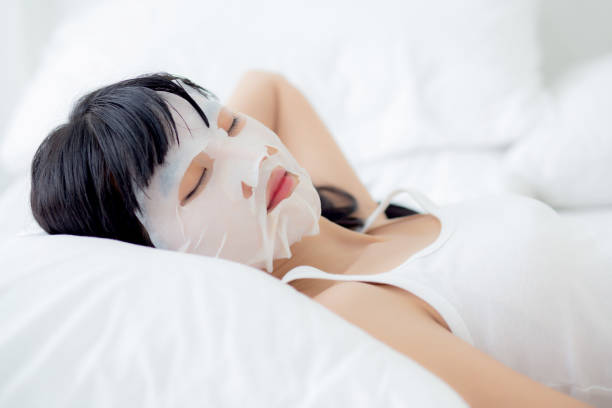
Incorporating Masks into Skincare Routine
Incorporating face masks into your skincare routine will help you achieve healthy, beautiful skin. Face masks provide a multitude of benefits, including deep cleansing, exfoliation, and moisturizing. In this part, we’ll talk about the best ways to incorporate face masks into your skincare routine.
Application and Removal
Before using a face mask, make sure your face is clean. This includes cleaning and exfoliating to ensure that the mask penetrates the skin correctly. Once your face is clean, apply the mask evenly, avoiding the eye area. Depending on the mask, keep it on for the prescribed amount of time before removing with lukewarm water.
When removing a peel-off mask, begin at the edges and peel carefully. Avoid pulling too hard on the mask, since this might cause skin harm. To remove clay masks, rinse with lukewarm water. Rinse thoroughly to ensure that the mask is completely gone.
Frequency and Timing
The frequency with which you use a face mask is determined on your skin type and the mask itself. Face masks are generally recommended to be used once or twice a week. However, if you have oily skin, you can apply a clay mask more frequently. However, if you have dry or sensitive skin, you should use a moisturizing mask.
When it comes to scheduling, it is critical to consider the other products in your skincare regimen. For example, if you use an exfoliating cleanser, it is not advisable to apply a face mask the same day. It is also vital to avoid applying a face mask before going outside in the sun because it can make your skin more vulnerable to UV rays.
In conclusion, including face masks into your skincare routine can help you achieve healthy, beautiful skin. You can maximize the benefits of face masks by following best practices for application and removal, as well as taking into account the frequency and time of use. If you are concerned about introducing face masks into your skincare routine, you should always check with a dermatologist.
Conclusion
Exploring the virtues of clay masks, with their ability to deeply cleanse, detoxify, and nourish the skin, has heightened my appreciation for the natural elements they harness. The prospect of drawing out impurities, balancing oil production, and promoting a radiant complexion serves as a compelling incentive to incorporate clay masks into my skincare routine. The variety of clays available, each with unique properties, provides a versatile arsenal to address specific skin concerns.
On the flip side, unraveling the mysteries of peel-off face masks and their capacity to exfoliate, remove dead skin cells, and enhance skin texture adds another layer to the skincare narrative. The satisfaction of peeling away impurities and unveiling refreshed skin appeals to my desire for a revitalized complexion. The potential benefits of increased circulation and improved absorption of subsequent skincare products further underscore the allure of peel-off masks.
As I weigh the merits of each, the realization dawns that the choice between clay masks and peel-off face masks may not be absolute but rather contingent on individual skin needs and preferences. Recognizing the importance of tailoring skincare rituals to my unique complexion opens the door to a more personalized and effective approach.

